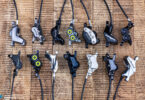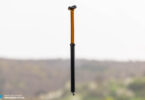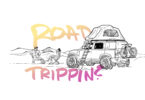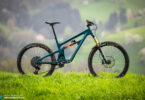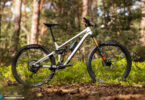The Curse of the UK National Enduro Series
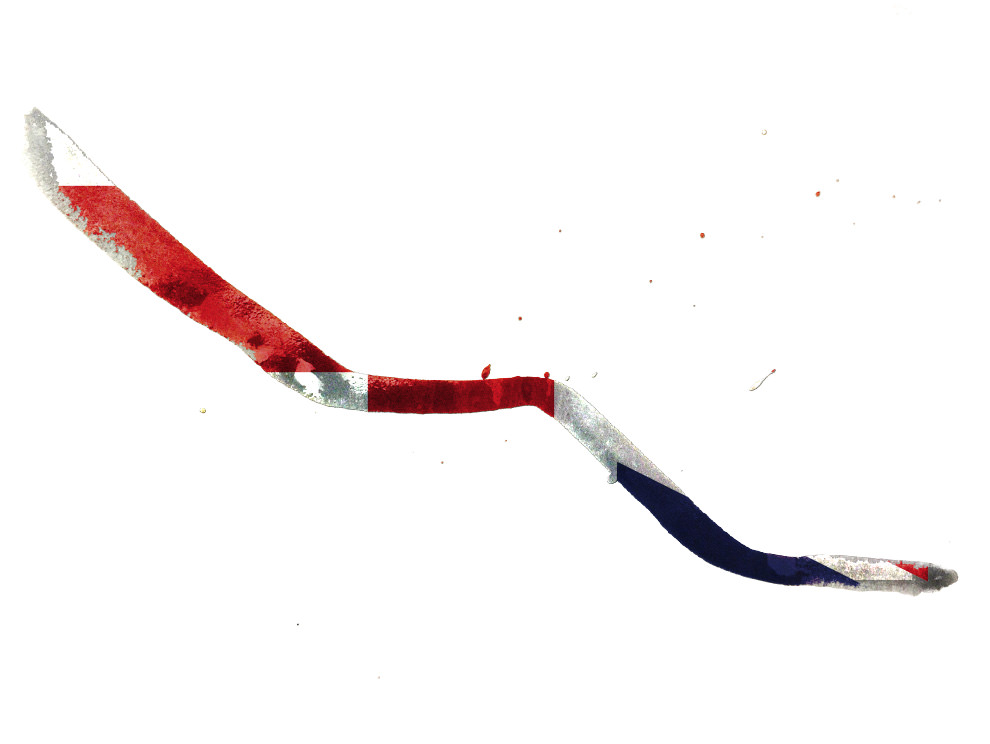
Visiting any grassroots enduro race in the UK, you could be forgiven for thinking that participation is booming. So what is it with the curse of a ‘UK National’ title that keeps killing events?
It would be fair to say the UK has a chequered past with the success of national level series. Even ignoring the sad year of 2016 where two rival ‘national series’ popped up with the same name before one spectacularly folded, taking everyone’s entry money, attempts to run a viable nationwide series have yet proved unsustainable. Last year, Si Patons British Enduro Series closed the doors, only for Steve Par to announce that he was going to throw his hat back into the ring and bring back UK Gravity Enduro, only to cancel the series three rounds later – what’s going on? While the UK arguably has the world’s best grassroots enduro scene, why is it that we cannot maintain a well-supported series that pitches the UK’s best against one another?
To find out more, we asked the UK’s BEMBA Members and top-notch organisers for comment on some of the key topics in the current status quo. PMBA’s Kev Duckworth (762 racers in 2017), Tweedlove’s Neil Dalgleish (1070 racers in 2017), Haibike Welsh Gravity Enduro’s Charlie Williams (969 racers in 2017) and POC Scottish Enduro Series’ Frazer Coupland (790 racers in 2017) revealed a very interesting perspective.

Again we see another supposed headline series fall by the wayside from lack of numbers, does this concern you for the future of your events?
“Yes and no, I had a good start to 2018 entries, but the 2 remaining rounds are down on numbers. I’ve always believed riders will vote with their feet, so you need to give riders what they want. I misjudged Graythwaite in 2018 making it too hard, but I’ll learn for 2019; I don’t think UKGE listened to what people said they didn’t like. Many many enduro events in the UK are completely sold out, and the best selling out months before. There is a demand for good enduro events in the UK” Kev Duckworth, PMBA
“I think the proposed new organisation for a National Series is a much better one. I never thought one single organiser should have the right to unilaterally claim theirs as the one and only UK National Series. It should showcase the best events in the different territories.” Neil Dalgleish, Tweedlove
“The 3rd failure of a single entity running a national Enduro series? I’m not surprised, to be honest, the market is saturated with events on rider’s doorsteps, people are less inclined to travel and riders are entering at the very last minute! My main concern is the lateness of which people are now entering events, 45% of entries for the Haibike Welsh Gravity Enduro series come in the last week! Entries are open months in advance but people will not enter or commit to the race, it’s very stressful.” Charlie Williams, Haibike Welsh Gravity Enduro Series
“Only a fool would not be concerned at the moment, there is a lot of uncertainty around us (Brexit). For most riders, events are at the top of the discretionary spend tree, that is you can still ride enduro without racing, few prioritise racing over kit, bikes, holiday, etc. If there is still money left over and everything else is in place then races/events are an added extra. Of course, there are exceptions to this case. You can never be complacent in the events world, you need to keep listening to your customers. All of them, including riders, sponsors, landowners, staff and volunteers, only by understanding their pressures and objectives can they assist in your delivery. We need to keep a careful eye on trends.” Frazer Coupland, POC Scottish Enduro Series
So what makes a good national series? It’s a tough question, but undeniably it’s foundation needs to be built on attracting the best riders. Previously, without an over-ruling governing body, anyone can host a national level series, indeed many claim to have done so. However, to be recognised by the riding community you have to know that the UK’s best riders are competing. We need the big showdowns Barrona vs Winton, Barnes vs Stuttard or a Scott vs Johnson, unless the creme of English, Welsh and Scottish riders embrace the series then it will never carry weight within the media and industry, instead falling into the doldrums of ‘just’ another rebranded local event. Getting the best riders together is no easy task, as our best elites now regularly hustle the top 10 places of the international stage at the EWS their focus needs to shift and the risk/reward of racing in domestic events is under increasing pressure. Racing is racing and injuries happen, to dedicate focus to racing a nationwide series, an elite rider needs to know that should they be successful their efforts will be rewarded with more than a quick podium shot followed by obscurity. For a ‘National series’ to be recognised by the riders, it needs to be recognised by the industry and media, promising promotion to elite level riders who stand on the top steps. The series needs to guarantee coverage, exposure and recognition. Some would even question if we even need a British Championship Title, or should winning an EWS be the main focus of our most talented athletes?

Do you think there is still a need for an ‘Official’ UK National Title?
“Absolutely there is – and for example look at Bex Barona, national champ sleeve at all the EWS’s proud of the title and promoting the fact. We always need a national champ!” Kev Duckworth
“Adding a recognised National Series in the UK will form an important layer of athlete development, so yes I think there’s a need. For me, one of the best things about this new National Series plan is that it’s not handed down by an overarching company or organisation. BEMBA is so far just a loose collective of all the organisers here who care about enduro – I like that. I think we all feel a responsibility to make the sport as good as we can, but nobody has put forward a plan to say ‘right this is how we can all make a wad of cash out of a National Enduro Series.’ The number one priority is still to make enduro good and keep it popular, so everyone’s events can hopefully improve and thrive.” Neil Dalgleish
“There is definitely a need for a national title but I firmly believe it should be earnt over the course of the season rather than at a stand-alone race hence for 2019 the ” National Champs” is the last race of the series with double points on offer!” Charlie Williams
Many would argue that from a racer’s perspective, the reason to race national events is to get noticed and secure sponsorship or brand recognition. It’s expensive to travel the length of the UK to race and with so many UK… this and British… that enduro titles over the last few years, do you think it will be easy to obtain recognisable support from the industry to make it worthwhile for a rider?
“Hopefully a national series made up of established and with a history of sell-out events will help promote individuals – but a lot of that will depend on the coverage riders get for competing at these events, and that’s as much with the MTB press as it is with event organisers and rider sponsors.” Kev Duckworth
“Time will tell, but that’s what we’ve been melting Messenger over recently. There’s no doubt a lot of us want to. And I hope it can go on from here in the right direction” Neil Dalgleish
“Collaboration is the most difficult task in any workplace environment, this will require strong leadership, the announcement was easy the detail will be much more challenging” Frazer Coupland.
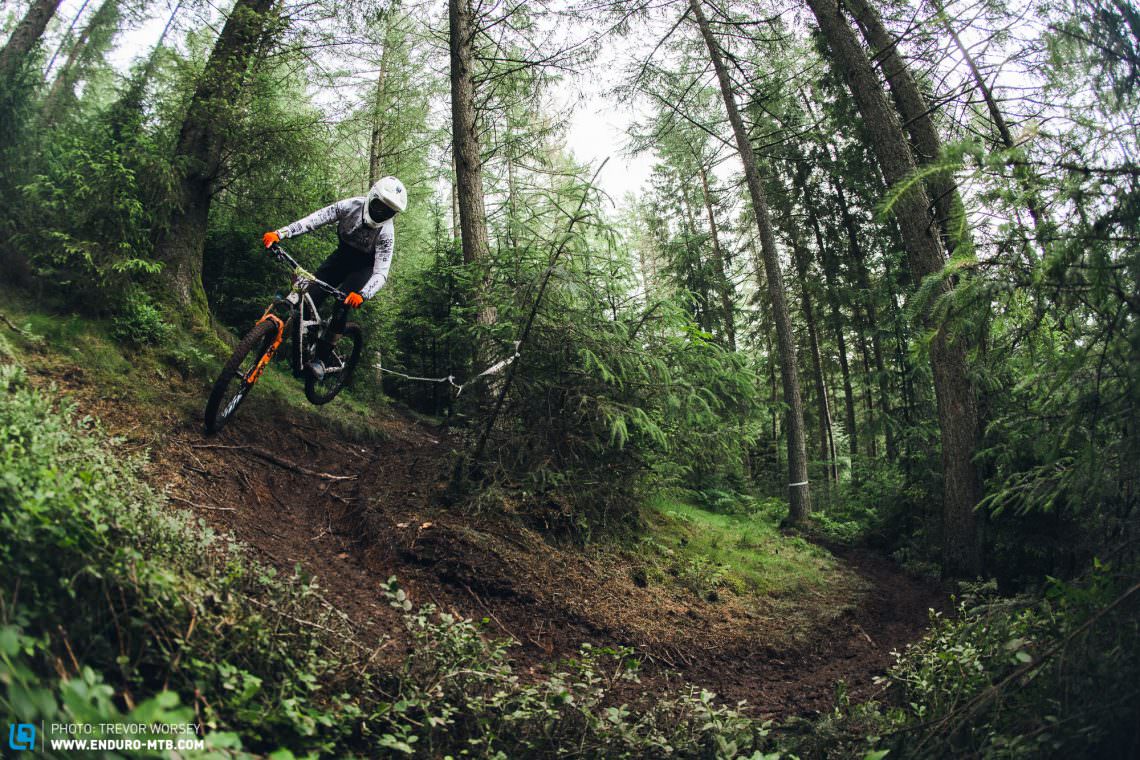
Why did the UKGE fail this year? Is UK enduro on a downward spiral? In collaboration with Seb Frost at the Root’s and Rain website, we delved deeper into the numbers. Firstly, is enduro racing in the UK still growing, looking at the numbers yes it is, but there are some interesting subtleties? We are still seeing a trend that year on year the number of individual racers is increasing, over the last 5 years 4,890, 6,384, 8,325 then 9,425 individual riders competed in 46, 58, 91 and 71 events in 2014, 2015, 2016 and 2017 respectively and already 7,754 participants have raced this year, so enduro is still growing, fact. What is interesting is if we break those participant numbers down to frequency of race entry. Over the last 5 years, the number of UK racers only racing just one event per year has increased from 59.28% to 62.69% (currently 65.31% this year), perhaps showing the increasing popularity of festival events like the Ard Rock, Tweedlove and the Malverns Classic. The number of ‘enthusiast’ racers (racing 6+ events a year) has fallen (albeit slightly) from 6.22% to 5.90% (currently 2.55% this year). As an example, and to put some hard numbers to these percentages, in 2017, there were 9,425 racers in the UK (on the Roots and Rain website), 5,909 of them raced just one event, 1,503 just two events and only 556 that raced 6 or more events.
It’s clear that for a series to tempt racers to travel around the UK, the current pool of dedicated weekend racers is worryingly small. Of course, many riders will not be interested in getting a UK ranking, and for a series to be successful it does not need the same riders at every event, however it does provide an interesting frame of reference when it comes to the viability of a national level series run by a sole organiser. With such a large percentage of riders choosing to race just one event, it is likely that many will chose either a local event or one that they are familiar with and support, again making it tough for one organiser to gain enough loyalty and support to fill a series at a National scale.
Do you think riders are growing less competitive, moving away from chasing seconds in search of more festival focused events (Ard Rock, Tweedlove, Malverns etc).
“No, there are just more events to choose from, and now we even have a European EWS continental series as well as EWS for the top guys to want to perform at – the festival events (and I’d include Graythwaite in that to some smaller extent) have a great affinity with enduro riders – whose focus is on fun and being social as much as the racing itself, but those wanting high-end competition have a huge choice of quality events to choose from.” Kev Duckworth
“I think that misunderstands what some of the events are about – it shouldn’t be one thing or the other. This year’s TweedLove British Champs Race had the biggest field we’ve ever had, but don’t tell me Lewis Buchanan, Bex Baraona, Katy Winton, Ruaridh Cunningham, Mark Scott and about 300 other seeded riders weren’t going for it. It was a very friendly event with all sorts of riders taking part though. It’s true that in some respects Enduro has moved away from its inclusive attitude, which for many is what’s been so great about it, but we 100% intend to keep that spirit alive. The EWS races seem to have a more elite aura around them now and there’s much less of the ‘we’re all in this together’ feeling, but for me the aim is to create the highest quality races on great tracks, which remain super-competitive for those who want it that way, but within an atmosphere of friendliness and inclusiveness that lets everybody else still race, have a good time and be a part of it all. Designing those differences into a single race is tricky, but ultimately, everyone enjoys it more when the vibe is good, whether you’re a pro or a relative novice.” Neil Dalgleish
“Competitiveness will never go away but I’ve noticed a lot more riders are just racing for the fun of it and to race with their mates, they are just as serious as the top riders but they’re not chasing podiums like they were. ‘Ard Rock, Tweedlove, Malverns are great showcases of our sport and give many many more riders the chance to ride and race. Not everyone can race every weekend so having these big festivals are giving those riders something to aim and look forward to.” Charlie Williams
What are the barriers to moving forwards?
“The world of hosting events is changing and we in the UK need to embrace those changes. Legislation and bureaucracy make it almost impossible for the passionate volunteer to compete in any event space (not just mountain biking). Going forward the current model where the organiser takes all the risk is starting to creek and a pattern of failure is emerging. Events are planned and created for a purpose and were once the realm of the organiser, however, successful events have to satisfy a number of strategic goals where collaboration is essential to success. There can be no doubt that there is a need for all those who benefit from events to collaborate and contribute appropriately. The benefits of collaboration between the industry, organisers, venues and communities are imminently apparent when working well and woeful when there is a lack of engagement. For example, is it reasonable that a well-known premier hotel group should increase their tariffs by over 200% when the World Cup is on in Fort William? but contributes nothing to the community by way of engagement and or support. On the other hand, Trek and Nevis Range’s partnership arrangement is already demonstrating benefits to the sport, the venue and doubtless meeting the manufactures objectives. Meaningful engagement will result in mutual success, achieving that meaningful engagement is incredibly difficult.
In the UK public sector support is available but is very competitive funding to access. The emergence of BIDs (Business Improvement Districts), Common Good Funds through renewable energy, is seeing some communities maximise the economic benefits of events within the communities and sharing the risk of the event organiser. Ultimately it is going to take collaboration from all sectors, good working partnerships and the mutual understanding of objectives that will be measure success and in some cases survive. Finally; whilst enduro is a pastime and a leisure pursuit for most, event organising is now a complicated business, managing relationships, delivering expectations and competing in a fierce marketplace. The riding community needs to expect a reasonable entry fee, the professional event organiser has significant overheads as any business does and it is not an offence in business to try and make money to survive.” Frazer Coupland
So, with a limited pool of enthusiast racers combined with a tough financial landscape is there hope? Insurance, medical cover, land rental are all growing increasingly expensive while riders are getting upset with rising entry costs. Add to that the tendency for riders to enter events later and later and you have a very unsettling time indeed for a race organiser. Nobody gets rich running races – it’s hard work for little reward. However, with the demise of the UKGE, BEMBA, like a phoenix from the ashes, immediately dropped news of their own UK National Series on Facebook. “The new BEMBA National Enduro Series will be spread over the UK with the final round being the National Championships race. There are plans for races in England, Wales and Scotland with the possibility of including an Irish round. The series proposes a simple two-day format with a full day’s practice on Saturday and racing on Sunday, with no pre-practice allowed. Discussions are underway to create a Team Championship trophy with mixed gender teams of three and the potential for double series points at the Champs event to encourage riders to take part.” The difference is that this time, rather than a single organiser trying to establish a series at a national scale, the series will cherry pick the best races from around the UK and offer recognised series points, identical to the model used to great success by the EWS. Is this the future of a UK National Enduro Series. Indeed, there are some incredible events in the UK, run by passionate organisers, and should they be able to work together, perhaps next year, the curse will be broken.
Have your say. Do you think there is still need for a UK National Series?
Did you enjoy this article? If so, we would be stoked if you decide to support us with a monthly contribution. By becoming a supporter of ENDURO, you will help secure a sustainable future for high-quality mountain bike journalism. Click here to learn more.
Words & Photos:


